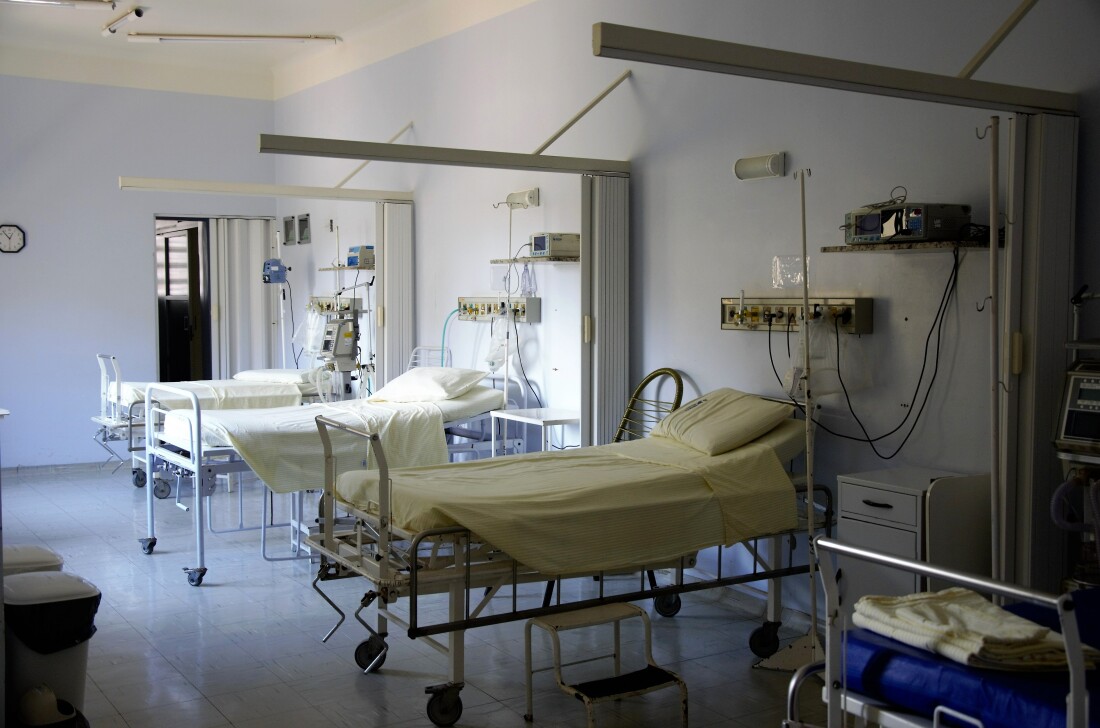Contact Us
Categories
Peer Review Privilege in Kentucky: A Revolution in Public Policy
KRS 311.377 grants broad privilege protections to peer review proceedings and documentation. As effective on July 14, 2018, this statute extends privilege and confidentiality protections to “the proceedings, records, opinions, conclusions, and recommendations of any committee, board, commission, medical staff, professional standards review organization, or other entity” engaged in performing a designated professional review function. This grant of privilege was enacted, and is effective, in extending statutory protections for nearly all information arising from the retrospective review and evaluation of the competency of professional acts or conduct of healthcare personnel. The 2018 amendments legislatively overrule a long history of Kentucky law that denied privilege protections to healthcare peer review proceedings.
 The issue of peer review confidentiality first arose in 1973 before the original enactment of KRS 311.377. In Nazareth Literary Benevolent Institution v. Stephenson, 503 S.W.2d 177, 178 (Ky. 1973), Nazareth argued that the disclosure of communications between the physicians and the hospital regarding “proper methods of treatment and the correction of mistakes,” would impede the communication necessary to learn from events involving patient care. Three years later, in 1976, the Kentucky General Assembly first enacted KRS 311.377 as, “AN ACT relating to health care malpractice insurance claims”; this enactment extended broad privilege protections for peer review materials “in any civil action.”
The issue of peer review confidentiality first arose in 1973 before the original enactment of KRS 311.377. In Nazareth Literary Benevolent Institution v. Stephenson, 503 S.W.2d 177, 178 (Ky. 1973), Nazareth argued that the disclosure of communications between the physicians and the hospital regarding “proper methods of treatment and the correction of mistakes,” would impede the communication necessary to learn from events involving patient care. Three years later, in 1976, the Kentucky General Assembly first enacted KRS 311.377 as, “AN ACT relating to health care malpractice insurance claims”; this enactment extended broad privilege protections for peer review materials “in any civil action.”
One year later, in McGuffey v. Hall, 557 S.W.2d 401, 407 (Ky. 1977), the Kentucky Supreme Court reasoned that the relationship between peer review proceedings and Plaintiffs’ medical malpractice actions was “purely coincidental,” and thereby ruled KRS 311.377 did not apply to medical malpractice actions. Further, the McGuffey Court held that the statute was in violation of Section 51 of the Kentucky Constitution as the substance of the statute involved more than one subject, and that subject had not been expressed in the title of the statute. In 1980, the Kentucky General Assembly renamed KRS 311.377 with the same statutory language to be “AN ACT relating to the establishment of certificate of need, licensing and regulation of health facilities and health services.” This version of the statute was reviewed by the Kentucky Supreme Court in 1989 in Sweasy v. King’s Daughters Memorial Hospital, 771 S.W.2d 812 (Ky. 1989), which limited the statutory privilege protections of KRS 311.377 to suits filed against peer review participants for defamation and conditionally held that, if the retitled KRS 311.377 were interpreted to apply to medical malpractice actions, it would still be in violation of Section 51 of the Kentucky Constitution.
The General Assembly again reenacted KRS 311.377 in 1990. As a basis for the enactment, the legislature noted that “the protection afforded to peer review participants for review functions … has been eliminated by … Sweasy v. King’s Daughters … and the lack of such protection inhibits open and candid peer review” and further acknowledged that “there is an urgent need to promote effective peer review for the welfare of the public.”
 In 1998, the Kentucky Supreme Court decision of Sisters of Charity Health System v. Raikes, 984 S.W.2d 464, 468 (Ky. 1998) rendered a decision that “rests entirely on statutory construction” and, therefore, did not address constitutionality. In Sisters of Charity, the Court held that, “the peer review privilege created by KRS 311.377(2) [was] limited to suits against peer review entities …”; presumably, this would involve only cases of professional defamation. Thus, KRS 311.377 was again stripped of its effectiveness in protecting peer review from litigation against healthcare providers. As the 2018 enactment of KRS 311.377 may yet be challenged, it is interesting to note that Sisters of Charity, 984 S.W.2d at 470 (Ky. 1998) recognized the authority of the General Assembly to enact a privilege to protect peer review; the Court stated, “While we agree with the dissent that the General Assembly could have enacted a statute extending the peer review privilege to medical malpractice actions, the fact remains that it did not.”
In 1998, the Kentucky Supreme Court decision of Sisters of Charity Health System v. Raikes, 984 S.W.2d 464, 468 (Ky. 1998) rendered a decision that “rests entirely on statutory construction” and, therefore, did not address constitutionality. In Sisters of Charity, the Court held that, “the peer review privilege created by KRS 311.377(2) [was] limited to suits against peer review entities …”; presumably, this would involve only cases of professional defamation. Thus, KRS 311.377 was again stripped of its effectiveness in protecting peer review from litigation against healthcare providers. As the 2018 enactment of KRS 311.377 may yet be challenged, it is interesting to note that Sisters of Charity, 984 S.W.2d at 470 (Ky. 1998) recognized the authority of the General Assembly to enact a privilege to protect peer review; the Court stated, “While we agree with the dissent that the General Assembly could have enacted a statute extending the peer review privilege to medical malpractice actions, the fact remains that it did not.”
Thus, from 1998 through 2018, KRS 311.377(2) was limited to almost non-existent suits for defamation against peer review entities. The Sisters of Charity limitations were upheld through numerous subsequent challenges, including McFall v. Peace, Inc., 15 S.W.3d 724, (Ky. 2000) and Saleba v. Schrand, 300 S.W.3d 177 (Ky., 2009). As in Sisters of Charity, the Kentucky Supreme Court also noted in McFall v. Peace, 15 S.W.3d at 184 (Ky. 2000) that the General Assembly had the power to enact these peer review protections; the Court stated, “… the legislature has had over ten years to amend that statute to include a clear, unmistakable prohibition against discovery of peer review documents in malpractice suits against healthcare providers.” Thus, the Kentucky Supreme Court, in both Sisters of Charity and McFall, has recognized the authority of the General Assembly to enact a form of KRS 311.377 that will protect peer review in medical malpractice actions.
In 2005, the United States Congress passed the Patient Safety Quality and Improvement Act (42 U.S.C. §299b-21 to 299b-26), which is relevant to the extent that Congress enacted a patient safety initiative with broad peer review privilege protections for those healthcare providers who participate in the program it created. Thus, Congress recognized and passed legislation to further the same public health priorities as KRS 311.377.
In 2018, the Kentucky General Assembly amended KRS 311.377 substantially. The long history of prior Kentucky peer review decisions no longer applies to the language of this statute. In its current form, the statute extends privilege and confidentiality protections to “any civil action in any court, including but not limited to medical malpractice actions, actions arising out of review of credentials or retrospective review and evaluation as referred to in subsection (1) of this section, and actions by an applicant for or grantee of staff privileges.” Thus, the statutory privilege protections of KRS 311.377 now specifically extend to medical malpractice actions and actions for facility negligence in the credentialing of healthcare providers.
 The protections of KRS 311.377 are limited to a “person or entity that attests to participating in a patient safety and quality improvement initiative, including the program established by the Patient Safety Quality and Improvement Act.” This is an important caveat for two reasons: first, participation in a quality improvement initiative is a prerequisite to the privilege and, second, because in any given case the scope of the initiative may be held to affect the scope of the privilege. The 2018 enactment extends its privilege protections to “the proceedings, records, opinions, conclusions, and recommendations of any committee, board, commission, medical staff, professional standards review organization, or other entity” that performs a designated professional review function.
The protections of KRS 311.377 are limited to a “person or entity that attests to participating in a patient safety and quality improvement initiative, including the program established by the Patient Safety Quality and Improvement Act.” This is an important caveat for two reasons: first, participation in a quality improvement initiative is a prerequisite to the privilege and, second, because in any given case the scope of the initiative may be held to affect the scope of the privilege. The 2018 enactment extends its privilege protections to “the proceedings, records, opinions, conclusions, and recommendations of any committee, board, commission, medical staff, professional standards review organization, or other entity” that performs a designated professional review function.
KRS 311.377(3) specifically excludes from the privilege “any evidence, document, or record which is subject to discovery independently of the proceedings” of the peer review entity. Like its federal analog, patient care records, billing records, discharge records, and other original patient records that do not result from a retrospective review of patient care continue to be discoverable. Similarly, KRS 311.377(4) makes clear that KRS 311.377(2) includes peer review communications, and only peer review communications, by excluding from the privilege any provider communications or statements that are made outside of the designated professional review function described in Section (2). Thus, by specifically excluding original patient care documentation and access to first-hand witness testimony outside of the professional review function, KRS 311.377(3) and (4) protect the peer review privilege protections of KRS 311.377(2) from a due process challenge under Section 14 of the Kentucky Constitution.
Through the current enactment of KRS 311.377, the General Assembly has effectively and thoroughly protected the documents and discussions involved in a retrospective review of health care events. Finally, Kentucky health care providers are empowered to engage in a privileged and confidential investigation and discussion of health care events.

Ed Monarch is a Member of McBrayer's Louisville office. After twenty-seven years as a trial lawyer, Mr. Monarch's practice now centers medical malpractice, healthcare law, and estate planning and administration. Mr. Monarch can be reached at emonarch@mcbrayerfirm.com or (502) 327-5400, ext. 2362.

